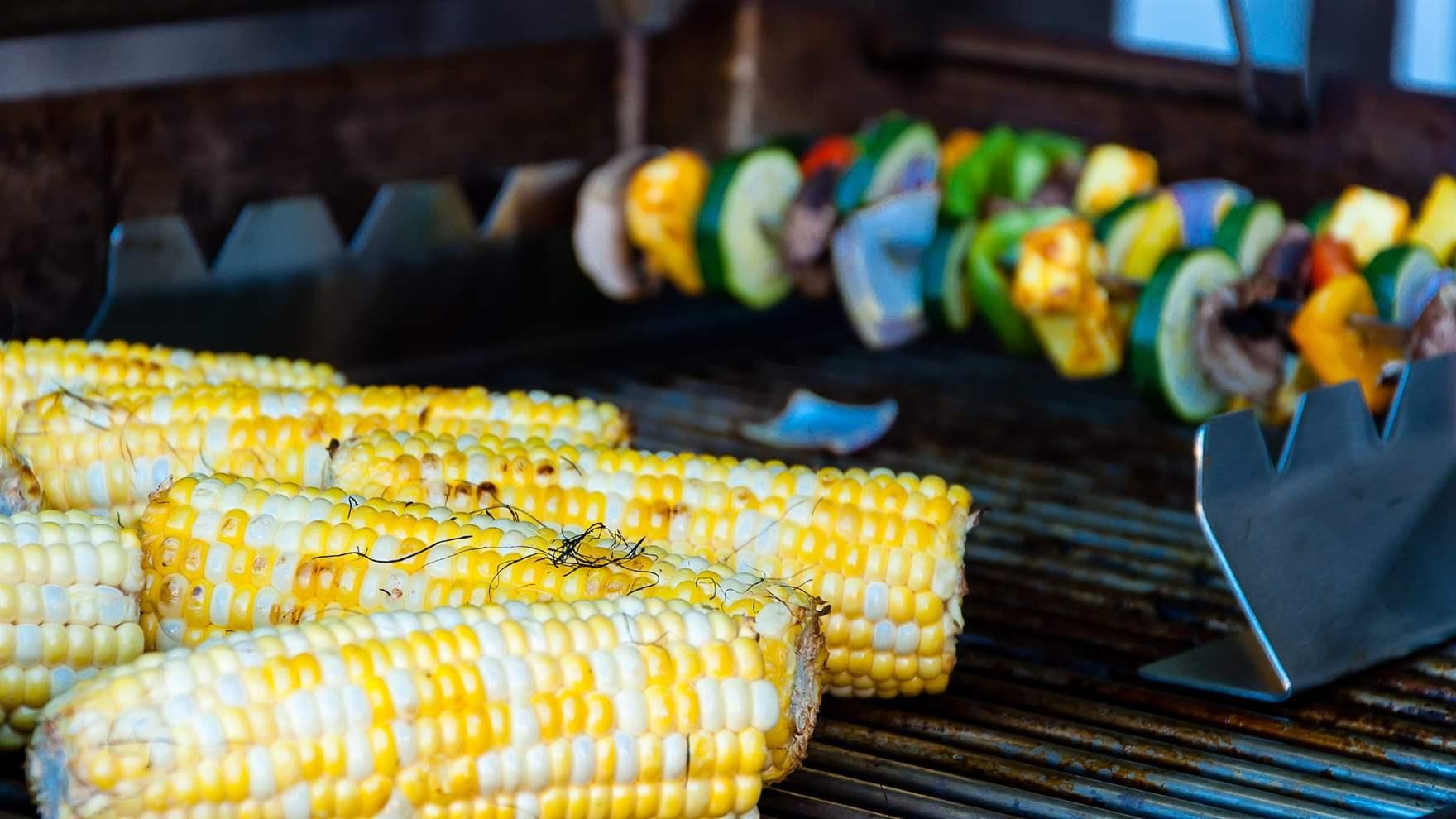Food for Thought — August

This monthly feature was written by Nutrition Sciences Services Practice Manager Kaitlin Poillon and Assistant Clinical Professor and Director of the Center for Nutrition & Performance Nyree Dardarian from Drexel’s nutrition counseling and the Department of Nutrition Services in the College of Nursing & Health Professions.
Seasonal Vegetables
Last month's "Food for Thought" was all about fruit, so this month, let’s talk about summertime vegetables. Cucumbers, tomatoes, peppers, squash, spinach and corn are all in-season during this time of year.
Did you know:
- Cucumbers are comprised of about 95 percent water, acting as another great source of hydration. They also contain potassium as well as Vitamins B, C and K.
- Tomatoes are one of the major dietary sources of lycopene, an antioxidant that supports cancer prevention and reduced risk of heart disease. They are also great sources of potassium and folate.
- Bell peppers, meeting over 140 percent of the daily value for Vitamin C, deliver a satisfying and low-calorie crunch with every bite. Peppers also contain anti-inflammatory properties to help in the reduction of chronic disease.
- High in vitamins A, B6 and C along with folate, magnesium, phosphorous, potassium and riboflavin, yellow summer squash is a nutritionally packed vegetable. Zucchini is also rich in many nutrients. It contains small amounts of iron, calcium, zinc and many other B vitamins. Its ample Vitamin A content supports eye health and the immune system, and most antioxidants from zucchini are found on its skin.
- One spinach leaf contains over half of the daily needed amount of Vitamin K, an important nutrient essential in blood clotting. Spinach is also an excellent source of iron which helps to create hemoglobin, important in transporting oxygen in blood to body tissues.
- Corn is deemed both a vegetable and a cereal grain. Sweet corn off the cob is considered a starchy vegetable, whereas dry corn kernels are classified as whole grains. Corn contains many B vitamins as well as zinc, magnesium, copper, iron, and manganese. Because of the starch content of corn, it is higher in carbohydrates than many other vegetables, making it a great source of energy as well as fiber.

- Drexel-Study-Finds-Early-Intervention-Helps-Most-Autistic-Children-Acquire-Spoken-Language
- Breakthrough on Gene Therapy for Hereditary Spastic Paraplegia
- How and When Could AI Be Used in Emergency Medicine?
- Drexel Public Health Researchers Lead $3.7 Million Study Looking at Impact of Federal Housing Assistance on Health Care for Chronic Conditions
Check out a few of our favorite recipes including these summertime veggies to keep mealtimes fun and delicious!
- Summer Vegetable Casserole (Food & Wine magazine)
- Grilled Corn on the Cob (AllRecipes)
- Mediterranean Quinoa Salad with Roasted Summer Vegetables (Cookie and Kate)
There’s more where that came from! Sign up for a free nutrition counseling session at Drexel today for more recipe tips! Inquire at NutritionAppts@drexel.edu today.
In This Article
Drexel News is produced by
University Marketing and Communications.